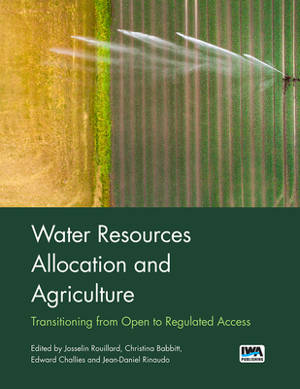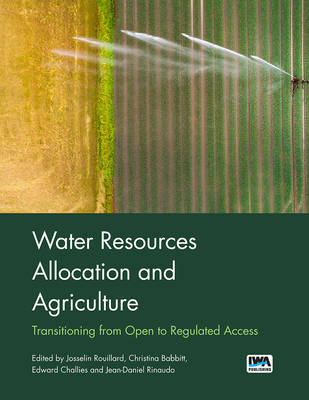
- Afhalen na 1 uur in een winkel met voorraad
- Gratis thuislevering in België vanaf € 30
- Ruim aanbod met 7 miljoen producten
- Afhalen na 1 uur in een winkel met voorraad
- Gratis thuislevering in België vanaf € 30
- Ruim aanbod met 7 miljoen producten
Zoeken
Water Resources Allocation and Agriculture
Paperback | Engels
€ 174,95
+ 349 punten
Omschrijving
The book brings together a range of leading scholars and practitioners to compile an international account of water allocation policies supporting a transition to sustainable water use in regions where agriculture is the dominant water use. In Section 1, the collection canvasses five key cross-cutting issues shaping the challenge of sustainable water allocation policy, such as legal and economic perspectives, the role of politics, the setting of environmental flows, and the importance of indigenous rights. Section 2 presents 13 national, state and transboundary case studies of water allocation policy, covering cases from Europe, the Americas, Central Asia, the Middle East and the Pacific region. These case studies highlight novel and innovative elements of water allocation regimes, which respond to the cross-cutting issues addressed in Section 1, as well as local challenges and social and environmental imperatives. The book provides a comprehensive account of water allocation in a range of international settings and provides a reference point for practitioners and scholars worldwide wishing to draw on the latest advances on how to design and implement sustainable water allocation systems.
Specificaties
Betrokkenen
- Uitgeverij:
Inhoud
- Aantal bladzijden:
- 300
- Taal:
- Engels
Eigenschappen
- Productcode (EAN):
- 9781789062779
- Verschijningsdatum:
- 15/08/2022
- Uitvoering:
- Paperback
- Formaat:
- Trade paperback (VS)
- Afmetingen:
- 156 mm x 234 mm

Alleen bij Standaard Boekhandel
+ 349 punten op je klantenkaart van Standaard Boekhandel
Beoordelingen
We publiceren alleen reviews die voldoen aan de voorwaarden voor reviews. Bekijk onze voorwaarden voor reviews.










